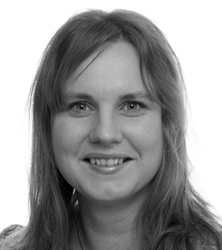Angelica Lindlöf

Matters
Current teaching
- Bioinformatics analysis with Python 1, G1N, BI121G
- Pythonprogramming for bioinformaticians, A1N, BI761A
- Analysis of NGS-data 1, A1N, BI732A
- Bioinformatics – research process, A1F, BI730A
- Thesis project in bioinformatics, A1E, 758A
Assignments
- Safety representative
- SACO-s, deputy in the local board
- SULF, member of the local board
Education
Course Coordinator
Research
2025
npj Precision Oncology
2025. Article.
https://doi.org/10.1038/s41698-025-01190-3
BMC Plant Biology
2025. Article.
https://doi.org/10.1186/s12870-025-06313-3
2023
Physiologia Plantarum
2023. Article. https://doi.org/10.1111/ppl.14015
2022
Bioinformatics and Biology Insights
2022. Article.
https://doi.org/10.1177/11779322211062722
Planta
2022. Article. https://doi.org/10.1007/s00425-022-03885-4
Physiologia Plantarum
2022. Article. https://doi.org/10.1111/ppl.13790
2021
Plant physiology and biochemistry (Paris)
2021. Article. https://doi.org/10.1016/j.plaphy.2021.02.016
2020
Cell Communication and Signaling
2020. Article.
https://doi.org/10.1186/s12964-020-00553-6
Physiologia Plantarum
2020. Article. https://doi.org/10.1111/ppl.13102
2019
Molecular breeding
2019. Article. https://doi.org/10.1007/s11032-019-1026-z
2015
2014
2013
2011
2010
2009
2008
2007
2006
2005
2003
Ongoing projects
Finished projects
Genes as targets for cancer treatment
We investigate genes that cause cancer aggressiveness. We specifically focus on the childhood cancer tumor neuroblastoma, which occurs in the nervous system of young children. Some tumors are more aggressive than others, and the difference is what has happened to the genes in the tumor. If the tumor has lost some of the genes on chromosome 11, the child has a poor prognosis. We test the properties of genes that have been lost, to see if those specific lost properties are something that will benefit the tumor cell. We want to replace those properties through different types of treatments, and in this way kill the tumor cell. We analyze clinical/genetic data and make experiments in cultured cells and in fruit flies.
January 2015 - July 2021 DHEAR – for a healthier and more sustainable soci